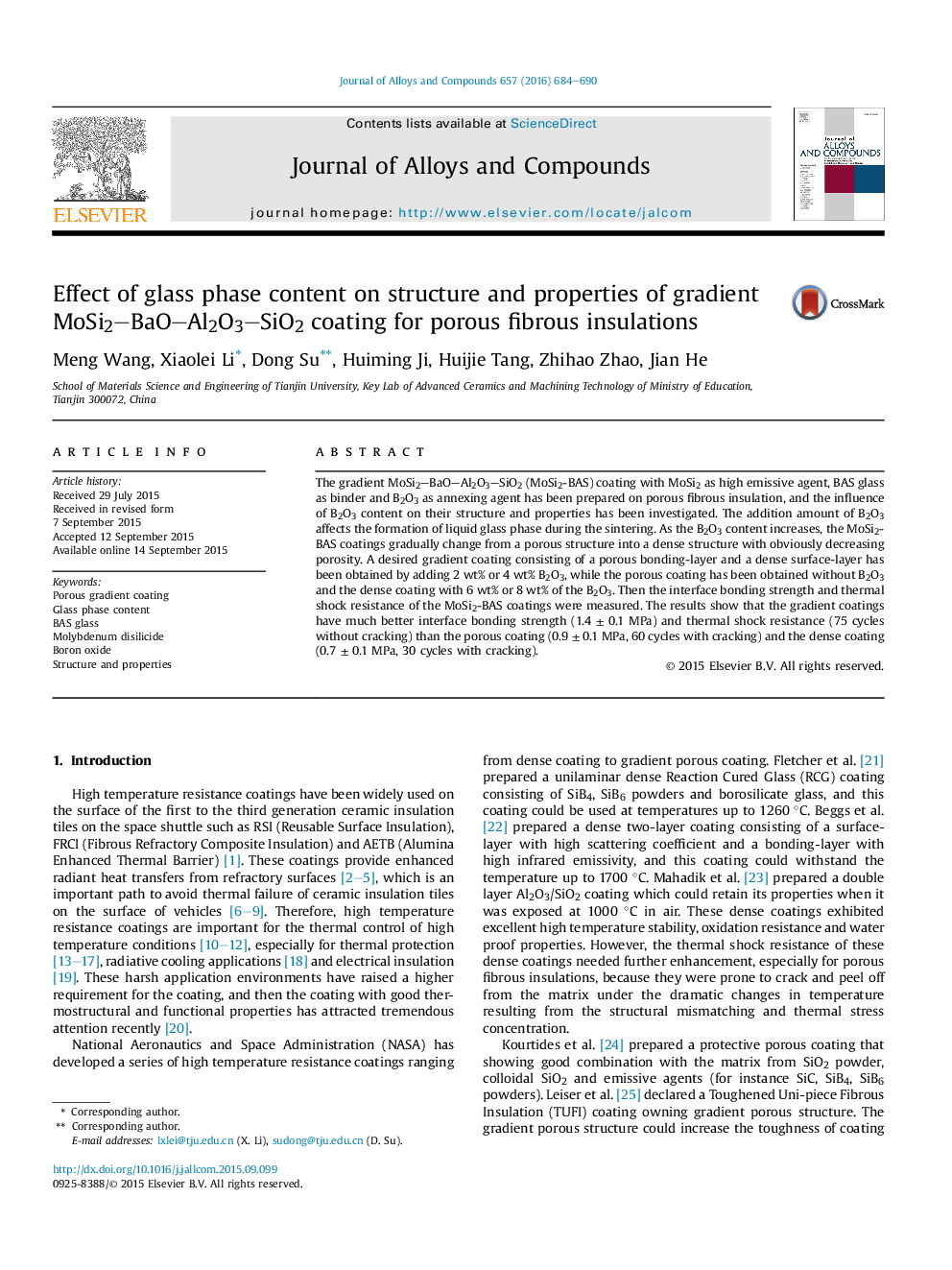| Article ID | Journal | Published Year | Pages | File Type |
|---|---|---|---|---|
| 1607377 | Journal of Alloys and Compounds | 2016 | 7 Pages |
•Glass phase has a great influence on structure and properties of MoSi2-BAS coating.•The liquid glass phase content was controlled by the addition amount of B2O3.•Porosity of coating decreases and coating becomes denser as B2O3 content increases.•The coatings with 2 wt%–4 wt% B2O3 content form a desired gradient structure.•Gradient coating exhibits excellent bonding strength and thermal shock resistance.
The gradient MoSi2–BaO–Al2O3–SiO2 (MoSi2-BAS) coating with MoSi2 as high emissive agent, BAS glass as binder and B2O3 as annexing agent has been prepared on porous fibrous insulation, and the influence of B2O3 content on their structure and properties has been investigated. The addition amount of B2O3 affects the formation of liquid glass phase during the sintering. As the B2O3 content increases, the MoSi2-BAS coatings gradually change from a porous structure into a dense structure with obviously decreasing porosity. A desired gradient coating consisting of a porous bonding-layer and a dense surface-layer has been obtained by adding 2 wt% or 4 wt% B2O3, while the porous coating has been obtained without B2O3 and the dense coating with 6 wt% or 8 wt% of the B2O3. Then the interface bonding strength and thermal shock resistance of the MoSi2-BAS coatings were measured. The results show that the gradient coatings have much better interface bonding strength (1.4 ± 0.1 MPa) and thermal shock resistance (75 cycles without cracking) than the porous coating (0.9 ± 0.1 MPa, 60 cycles with cracking) and the dense coating (0.7 ± 0.1 MPa, 30 cycles with cracking).
Graphical abstractFigure optionsDownload full-size imageDownload as PowerPoint slide
